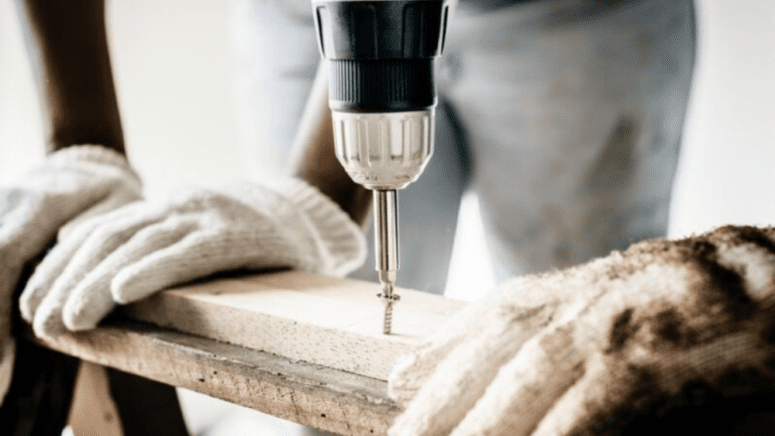How to Get Started Flipping Houses: 5 Tips Reality TV Won’t Teach You
- Published on
- 9 min read
-
Christine Bartsch, Contributing AuthorCloseChristine Bartsch Contributing Author
Former art and design instructor Christine Bartsch holds an MFA in creative writing from Spalding University. Launching her writing career in 2007, Christine has crafted interior design content for companies including USA Today and Houzz.
-
Taryn Tacher, Senior EditorCloseTaryn Tacher Senior Editor
Taryn Tacher is the senior editorial operations manager and senior editor for HomeLight's Resource Centers. With eight years of editorial and operations experience, she previously managed editorial operations at Contently and content partnerships at Conde Nast. Taryn holds a bachelor's from the University of Florida College of Journalism, and she's written for GQ, Teen Vogue, Glamour, Allure, and Variety.
The home-flipping fad isn’t just an obsession among reality TV addicts. The number of people flipping homes in real life is still growing. In 2022, 8.4% of all home sales were flips, compared to just 5.8% in 2017.
However, although television makes flipping look easy, exciting, and profitable, the reality isn’t so glamorous. It takes a lot of money and manpower to transform an outdated house into a showplace home — especially if you plan to profit when you resell the property.
We’re talking about a high-risk business with profit margins as low as 20-30% — the lowest since 2008.
Just ask Bryan Lebo, an agent with over 10 years of experience flipping homes. Lebo ranks in the top 1% out of nearly 10,000 sellers’ agents in Las Vegas:
“The most important thing you need to realize is that profit is not guaranteed. Just because you’re buying a house to flip doesn’t mean that you’re going to make money,” says Lebo.
Here we’ll dive into advice from the pros on how to get started flipping houses that you’ll never find on TV.
House flipping isn’t ‘as seen on TV’
As successful as home flipping shows seem, remember that their primary profit comes from advertisers, not the home sale itself. Those shows will also have two things you won’t: a studio-backed budget and a paid crew doing the major construction work off-camera.
When solely responsible for the capital and remodeling, a few mistakes can quickly transform your profit margins into a crushing loss.
New flippers aren’t the only ones facing thin profit margins. Statistics show that most flippers sold for a gross profit margin of only 32.1% in 2022. Why? Because the median value rose more slowly than the median price, they paid to purchase these properties.
So, what can you do to ensure that your first flip turns a profit?
While there are no guarantees, here are five things you can do to set yourself up for home-flipping success.
1. Hire a top-notch agent with flipping experience
For your best chance at turning a profit, the first thing you need to do is team up with an expert real estate agent.
According to flipping experts, partnering with the wrong agent is one of the biggest mistakes rookie flippers make.
When you become a home flipper, you’re essentially starting a self-employed business.
Remember, when you flip a house, you’re both buying and selling it in a short amount of time. An experienced agent is in a position to help you figure out the right price to pay for an as-is house so you can sell it at a profit once the remodel is done.
Agents with flipping experience understand the financial implications of that—such as self-employment tax laws and how to track business expenses.
2. Gather solid intel on your local real estate market
“If you’re looking to get into flipping, you truly have to educate yourself on the market very quickly,” says Lebo.
For example, where you flip has a more significant impact on your success than the “what” you flip or “who” you know.
No matter how good of a bargain you strike when buying an as-is property, or how stellar your remodel is — you won’t make a significant profit on your flip if the real estate market conditions aren’t right.
Home flipping is most successful in areas with a low inventory of homes available for sale, and where home values and prices are on the rise.
If these two things aren’t happening in your area, you’ll have difficulty making money as a home flipper.
Understanding your local real estate market trends is an absolute must, according to the experts. You need that same level of expert knowledge about how much money you’ll need to become a home flipper.
3. Save enough working capital to cover unexpected expenses
In regards to financing your flip, Lebo identifies three questions you need to ask your flip-experienced agent:
- “Am I buying the house for the right price?”
- “Can I make needed repairs within my budget?”
- “Will I be able to sell the home for the price that I’m expecting to?”
The answers to these questions are key to planning the finances for your first flip. Just don’t let those answers fool you into thinking that the purchase price of the house and the remodel budget are all the money you’ll need.
Many first-time flippers forget to account for Murphy’s Law: “Anything that can go wrong, will go wrong.”
Each unexpected expense not only eats into your future profit but can wipe out your cash flow. Flippers who become cash-strapped during the remodeling process often need to cut corners just to make ends meet.
If that happens, you are no longer selling a superior product from a financially secure position that allows you to wait for the best offer to net you the greatest profit. Instead, you’re selling a low-quality remodel from a financially weak position, desperate to break even.
“The last thing you want is to not have enough working capital,” says Lebo. “Make sure that you have more cash than you think you need. That way, if there are complications, or it does take longer to sell, you can still survive.”
4. Gain ROI-savvy knowledge of interior design and home repairs
No matter how much working capital you have to make repairs and upgrade to your flip, it won’t be enough if you’re spending it in the wrong place.
“Just because you’re remodeling a property doesn’t mean you’re remodeling it correctly,” Lebo advises.
“It doesn’t mean that your market is going to like what you’re doing. If you don’t choose the right materials, or the right look, you actually devalue the house in the process.”
Unfortunately, first-time flippers tend to forget about the return on investment.
Inspired by the trendy remodels on house flipping shows, too many beginner flippers treat the process like they’re playing “dress up” with the house, and make design decisions based on what they like.
Flipping experts who net the biggest profits know remodeling isn’t about what they like design-wise — it’s about what the market wants. That’s why it’s so important to work with a real estate agent who’s currently active in your local market. They are best equipped to know what buyers in your area want.
Of course, which repairs and upgrades to make is just the first decision you need to make during the remodeling process. Which contractor you hire to do the remodel is just as important.
Picking the right renovations to bring in the best return on your investment (ROI) can make or break your flipping success.
It’s so important that the National Association of Realtors put out a Remodeling Impact Report in 2022, detailing which renovations are the most profitable.
5. Hire a reliable contractor who’ll buy the right materials
Thanks to some unreliable contractors, the profession has earned a reputation for spending more time and money than promised to complete a job. Some dishonest ones will insist on money upfront, then shutter their “business” and skip town without doing any work.
Luckily, there are plenty of reliable contractors out there who are licensed, bonded and insured — the trick is finding them. That’s where your agent comes in.
Good agents know how important a reliable contractor is to the success of a home flip.
With every home that expert agents sell, they take note of the contractors who completed work on time and within your budget — and pass their contact information on to their sellers.
Though house flipping is much more difficult than it is portrayed on television, with a solid plan, substantial capital, and an excellent agent with house-flipping experience, your very first flip can be a profitable investment.
FAQs for How to Get Started Flipping Houses
House flipping is a real estate investment strategy where you purchase a property, typically in need of repairs or renovations, with the intention of selling it quickly for a profit. The goal is to enhance the property’s value through improvements and upgrades.
The amount of money needed to start flipping houses can vary widely depending on factors such as location, property prices, and the extent of renovations required. Generally, it’s recommended to have a substantial amount of capital for purchasing the property, covering renovation costs, and having some reserve funds for unexpected expenses.
While real estate experience can be beneficial, it’s not always necessary to start flipping houses. Many successful flippers begin with little to no prior experience. However, it’s essential to educate yourself about the local real estate market, renovation processes, and the financial aspects of house flipping to minimize risks.
There are several ways to find properties for flipping:
- Real Estate Agents: Work with experienced agents who specialize in distressed properties.
- Foreclosures and Auctions: Attend foreclosure auctions or search for bank-owned properties.
- Online Listings: Utilize real estate websites and platforms to search for properties with potential.
- Direct Marketing: Send mailers or post ads indicating your interest in buying distressed properties.
Look for properties with the following characteristics:
- Suitable Location: A desirable neighborhood or area can significantly impact resale value.
- Strong Potential: Properties with cosmetic issues rather than structural problems are often better choices.
- Negotiable Price: Aim to purchase below market value to allow room for renovations and a profit margin.
- Realistic Renovation Costs: Accurately estimate the cost of repairs and improvements to avoid overextending your budget.
Successful house flipping requires careful planning, financial discipline, and a well-thought-out strategy. It’s also a good idea to consult with real estate professionals, contractors, and financial advisors to navigate the process effectively.
Article Image Source: (Rawpixel/ Unsplash)








